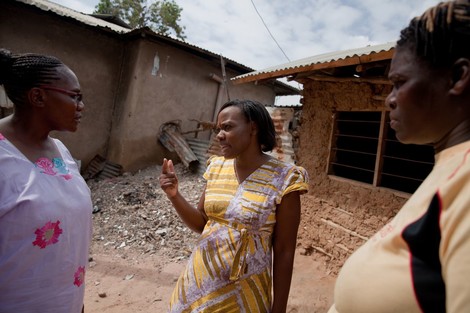Your podcast discovery platform
Curious minds select the most fascinating podcasts from around the world. Discover hand-piqd audio recommendations on your favorite topics.

piqer for: Global finds
Ciku Kimeria is a Kenyan author "Of goats and poisoned oranges" - (https://www.amazon.com/goats-poisoned-oranges-Ciku-Kimeria-ebook/dp/B00HBBWPI6), development consultant, adventurer and travel blogger (www.thekenyanexplorer.com). She writes both fiction and non-fiction focusing on African stories that need telling. She has worked on diverse pieces for various international and local publications including Quartz, Ozy, The East African etc. She has travelled to 45 countries – 16 of them in Africa. 153 countries to go and 63 territories!
"Of goats and poisoned oranges" has been extremely well received in Kenya and beyond. It tells the story of a Kenyan middle aged power couple and their complicated marriage. The novel explores issues of greed, revenge, betrayal and murder. It runs from the 1960s to 2013. It has been described as “Wicked, funny, poignant, wacky, human, a big ball of fun and danger”, “A unique and captivating book”, “Fun and intriguing”, “Impossible to put down once you start reading.”
She recently moved to Dakar, Senegal from Kenya to work on her second novel. She also works at as the Africa Communication Manager at a leading global strategy consulting firm.
She holds a B.S. in Management Science from MIT with minors in Urban Planning and International development studies.
A Mother's Fight Against Lead Acid Poisoning In Her Village In Kenya
When Phyllis Omido began working in a lead acid battery smelting facility in her community of Owino Uhuru in the Kenyan coastal town of Mombasa, she had no idea of the dangers she was exposing herself and her baby to. Her employers hoped to keep things that way, but faced a dilemma when people in the community started to suffer from symptoms or die from lead poisoning.
She’d arrived early in 2009, taking what seemed at the time an ideal job as the smelter’s public relations officer...She was allowed to bring her 2-year-old son to work at the company’s onsite office. She was making more money than she ever had before. It appeared perfect. Three months into the job, around the time the Kenyan inspectors paid a visit, Omido’s son fell seriously ill...They tested him for all the tropical diseases common in the region: Malaria, typhoid, rota. No tests hit, he got worse, and Omido could do nothing but pray.
No lab in Kenya could test for lead, so Omido sent a vial of her son’s blood to South Africa by plane. It came back with a reading of 45 micrograms per deciliter (ug/dl). The highest blood-lead reading in Flint, Michigan at the height of the now-infamous crisis there was 38 ug/dl.
All of a sudden, she began to connect the dots—the managers who would come to work in protective gear but give the employees only cotton gloves, the worker who dropped dead at his work station, the sick neighbors with unexplained symptoms. Omido began a long fight against her employer and similar operations that were killing people as they selfishly profited off the community's ignorance and the government's complacency.
They used to tell us that because we had been working there for so long, whether we quit or kept working, we would still die.
As she fights to raise awareness about what is going on, Omido faces several obstacles and powerful agents behind the scenes hell-bent on making sure she doesn't destroy their business even if it comes at the expense of risking people's lives.
Stay up to date – with a newsletter from your channel on Global finds.
